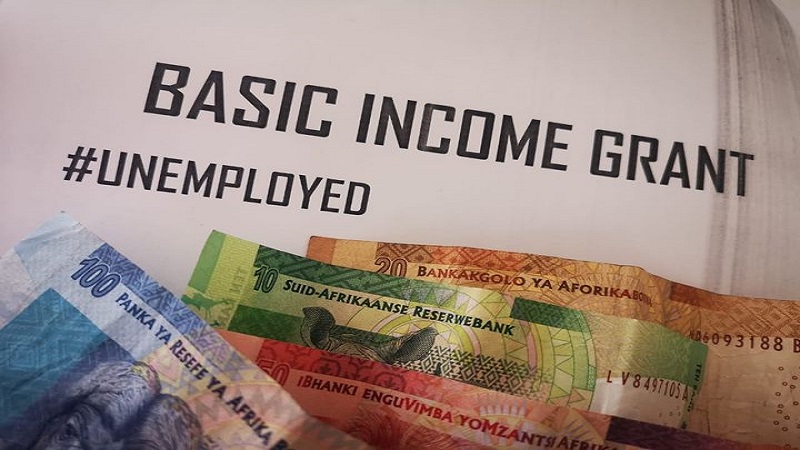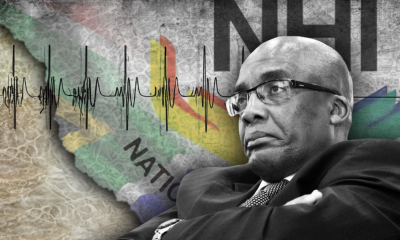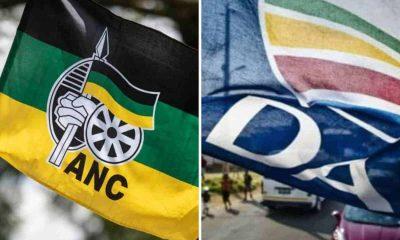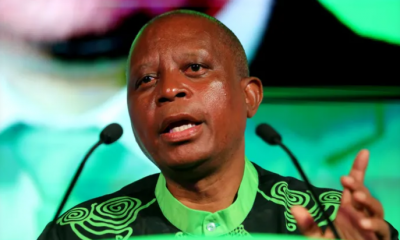411
South Africa Moves Closer to Basic Income Grant as VAT Hike Debate Intensifies

South Africa’s long-debated Basic Income Grant (BIG) is inching closer to reality, but the path to funding it remains fraught with challenges. The government’s contentious plan to increase value-added tax (VAT) has sparked heated debates, revealing early signs of how the state might finance the BIG or the National Health Insurance (NHI) scheme.
VAT Hike: A Contentious Funding Solution
Last week, the 2025 Budget was postponed due to disagreements within the Government of National Unity (GNU) over a proposed two-percentage-point VAT increase, from 15% to 17%. Finance Minister Enoch Godongwana had planned to announce the hike, which would have been partially offset by expanding the VAT zero-rated list. The Bureau for Economic Research (BER) noted that this increase would have stabilized the debt ratio and shifted funds toward infrastructure investment, frontline services, and social grants.
However, the move would have come at a significant cost to taxpayers, dampening consumer spending and potentially weakening economic growth. National Treasury defended the VAT hike as “unavoidable” to fund policy priorities like the BIG and NHI while maintaining fiscal sustainability.
The BIG Promise and Funding Challenges
President Cyril Ramaphosa reaffirmed the government’s commitment to a Basic Income Grant during his recent State of the Nation Address. However, the postponed budget highlights the challenges of securing sustainable funding. The BER pointed out that the budget lacked a permanent funding solution for the Social Relief of Distress (SRD) grant, which is seen as a stepping stone toward a BIG.
The 2024 Budget allocated R173.3 billion in new funding over the next three years, with R75.6 billion earmarked for frontline services like education and healthcare. Social grants received the second-largest share (R58.5 billion), including an extension of the SRD grant for another year. However, a recent High Court ruling has complicated matters, ordering the government to expand the SRD grant to 18 million recipients—up from 10 million—and increase the monthly benefit beyond R370.
Trade-Offs and Tough Decisions
The VAT hike debate underscores the difficult trade-offs facing the GNU and Treasury. If the VAT increase is rejected, the government will need to find alternative funding sources or cut expenditures elsewhere. The BER emphasized that Treasury’s revenue projections from the VAT hike are optimistic, raising questions about its feasibility.
The budget also allocated R46.7 billion for infrastructure projects, particularly in water and transportation, and R23.4 billion for a new public sector wage agreement. These expenditures, while critical, further strain the fiscal framework, leaving little room for additional social spending.
What’s Next for the BIG?
As South Africa grapples with rising inequality and poverty, the push for a Basic Income Grant remains a top priority. However, the VAT hike controversy highlights the complexities of funding such a program without exacerbating economic challenges. The coming months will likely see intense negotiations within the GNU, as stakeholders weigh the costs and benefits of various funding options.
For now, the dream of a Basic Income Grant is closer than ever, but its realization hinges on tough fiscal decisions and a delicate balancing act between social welfare and economic stability.
Follow Joburg ETC on Facebook, Twitter , TikTok and Instagram
For more News in Johannesburg, visit joburgetc.com



























